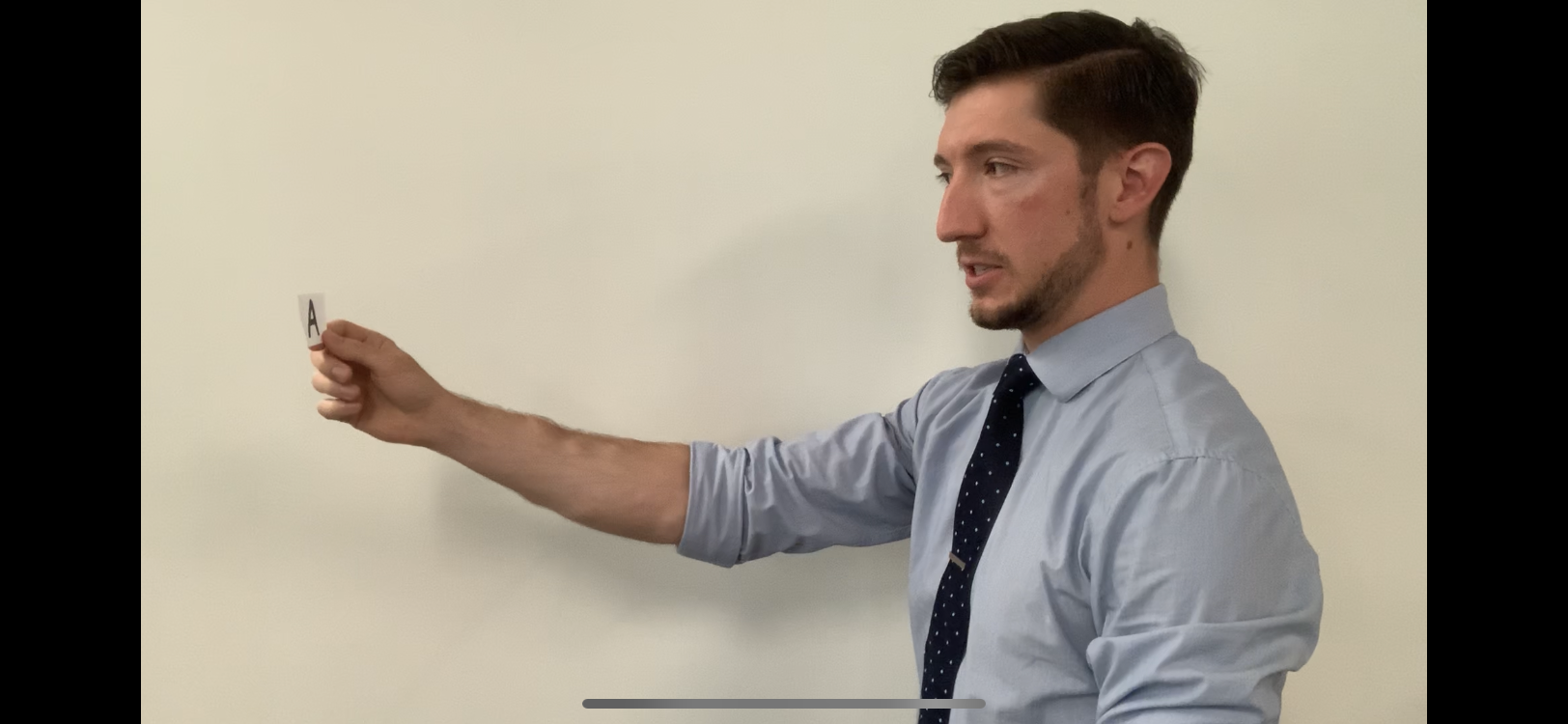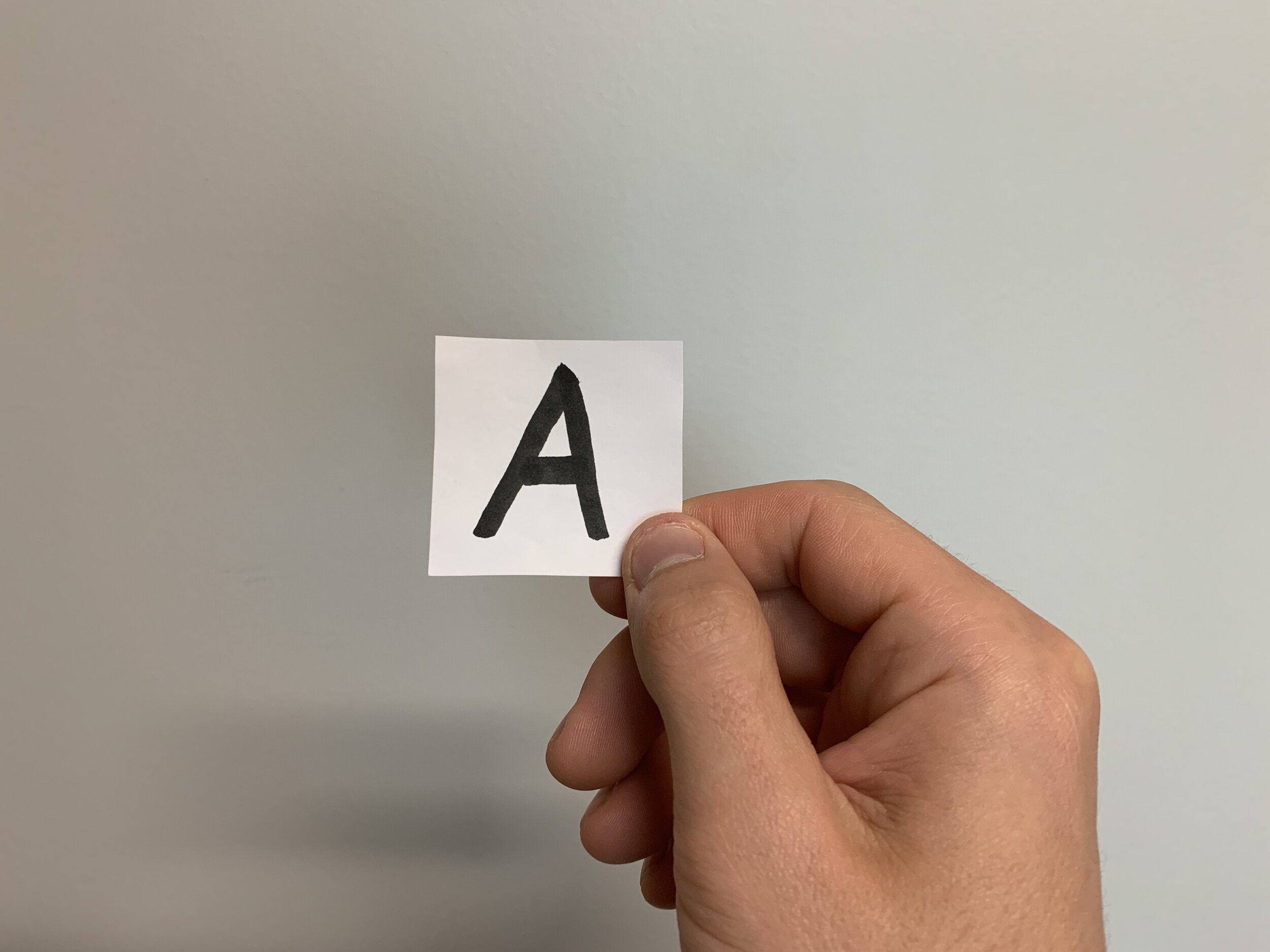Clear vision relies on seamless communication between the vestibular organ (in your inner ear) and your eyes. This allows your eyes to almost instantaneously adapt to changes to your head and body position. This is called your vestibulo-ocular reflex (VOR) and problems with this reflex are a common cause of dizziness and motion sickness. In short, your eyes are detecting head movement when there is none, which causes your eyes to try to refocus constantly, resulting in dizziness.
Read this article to see if your VOR is contributing to your dizziness. If that test caused your dizziness then try this “exercise” to help improve your dizziness.
Begin by rating your current level of dizziness on a scale from 0-10. Remember that number.
Write a letter on a card and hold it 18 inches away from your face and focus your gaze on the letter.
Turn your head 45 degrees to one side, but keep your eyes focused on the letter. Then rotate your head 45 degrees to the other side, keeping your focus on the letter.
Begin to rotate faster and faster until you are turning your head at 2 rounds per second. This will feel really fast! Continue until your dizziness increases by 2 points on the scale from 0-10. Stop, put down the card, and let your dizziness calm back down. Once your dizziness has returned to the level at which it started, repeat the exercise again.
Perform the exercises 3 times per session, 3 sessions per day, every day of the week. As you improve, start to perform the exercise for a longer duration (up to 1 minute at a time). If you feel your symptoms are not improving then we recommend scheduling an appointment to get a proper diagnosis from one of our vestibular specialists at Mend.
Write a letter on a card and hold it 18 inches away from your face and focus your gaze on the letter.
Turn your head 45 degrees to one side, but keep your eyes focused on the letter. Then rotate your head 45 degrees to the other side, keeping your focus on the letter.



